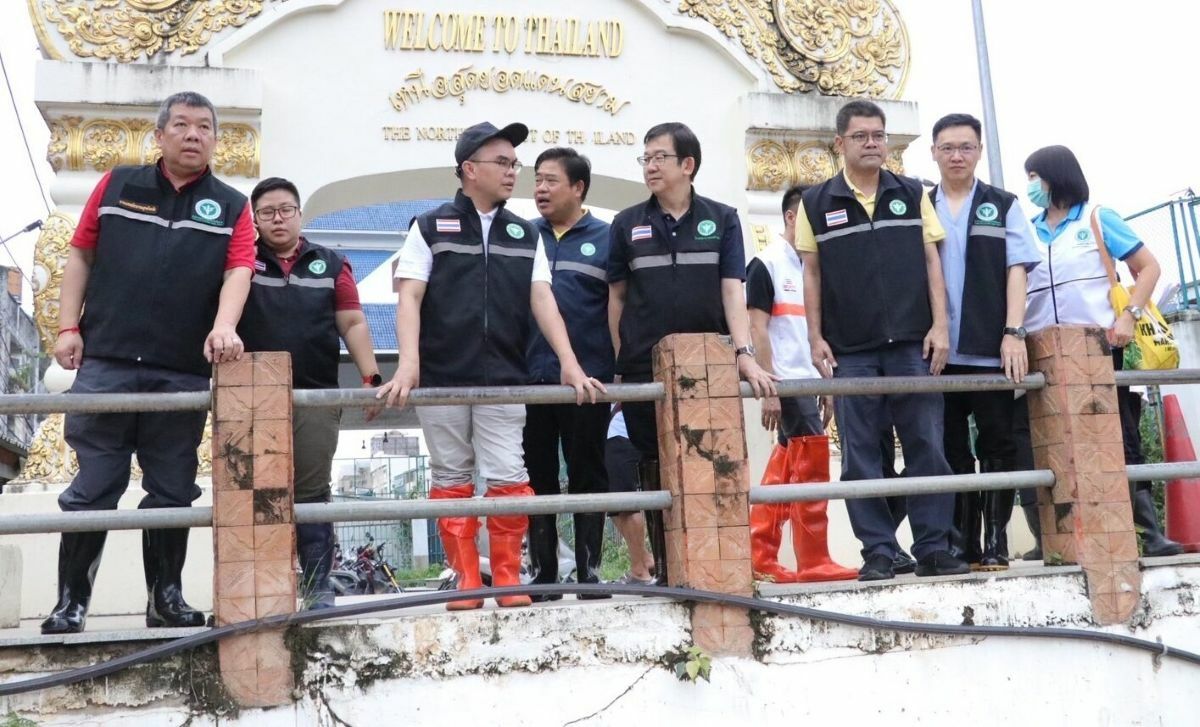Measles outbreak in New Jersey and commitment to Environmental Health Issues declared by Mae Fah Luang University
Mae Fah Luang University (MFU), in collaboration with the MFU Wellness Center and the School of Medicine, hosted an academic forum entitled “Awareness, Collaboration, Action: Health Hazards from Contaminated Rivers” on April 11, 2025. The event took place at the Kham Mok Luang Room, M-Square Building, and was also live-streamed via Facebook to ensure widespread accessibility.
The forum convened representatives from local agencies, faculty, staff, students, and interested members of the public to address the environmental and health threats stemming from toxic and pollutant contamination in the Kok River. Prof. Dr. Sujitra Wongkasemjit, Vice President of MFU, inaugurated the event, emphasizing the Kok River's historical significance as a vital resource for the people of Chiang Rai. She noted the critical challenges it now faces due to contamination from toxic substances and pollutants, which directly impact public health and ecosystems. Dr. Wongkasemjit stressed that a comprehensive understanding of these issues, informed by academic data and supported by collaborative efforts across all sectors, is crucial for achieving sustainable solutions.
During the forum, MFU announced its declaration of intent, “Operational Guidelines to Address Health Hazards from Contaminated Rivers,” signed by Asst. Prof. Dr. Matchima Naradisorn, President of MFU. This declaration outlines six strategic approaches:
- Partnering with Chiang Rai Province and regional agencies
- Disseminating accurate information and knowledge
- Recommending self-care and community protection practices
- Promoting environmental research
- Strengthening collaboration with regional higher education institutions
- Providing academic and policy recommendations to relevant authorities
The declaration underscores Mae Fah Luang University’s commitment to providing support to the public during times of heightened environmental health concern. MFU aims to leverage its academic knowledge, expertise, and multi-sector collaboration to foster a safe, healthy, and sustainable society.
The forum was moderated by Assoc. Prof. Dr. Rawiwan Charoensup, Acting Director of the MFU Wellness Center, and featured presentations from distinguished speakers from various fields, including Dr. Pattaraporn Mekavuthikul from Mahidol University, Asst. Prof. Dr. Krailak Fakkaew from Mae Fah Luang University, and Asst. Prof. Napamon Pumsopa, also from Mae Fah Luang University.
The speakers addressed growing concerns regarding contamination in the Kok River, where elevated levels of heavy metals, particularly arsenic and lead, have been detected, especially in the Mae Ai district of Chiang Mai. They noted that water quality has deteriorated in recent years due to agricultural runoff, chemical use, industrial discharge, and mining activities. The health impacts of such contamination were discussed, including short-term symptoms such as nausea, vomiting, severe abdominal pain, and diarrhea. Long-term exposure may elevate the risk of cancer, neurological disorders, kidney and liver diseases, and anemia, particularly among vulnerable populations such as children, the elderly, and those who rely directly on river water for daily activities.
The public was advised to avoid using or consuming water directly from the Kok River and to refrain from eating fish and vegetables sourced from the river. Individuals experiencing unusual symptoms after contact or consumption were urged to seek medical consultation. Speakers clarified that tap water produced from the Kok River remains safe due to thorough filtration processes that meet safety standards. Groundwater and well water sourced far from the Kok River are also considered usable, especially when treated with carbon-filter water purifiers or DIY filtration systems equipped with activated carbon layers.
In terms of policy recommendations, experts proposed establishing a “Special Surveillance Zone around the Kok River,” developing long-term action plans, and implementing stricter regulations on high-risk activities in upstream areas. The crucial roles of community nurses and village health volunteers in monitoring the health of at-risk populations and providing guidance on safe water use were also emphasized.








